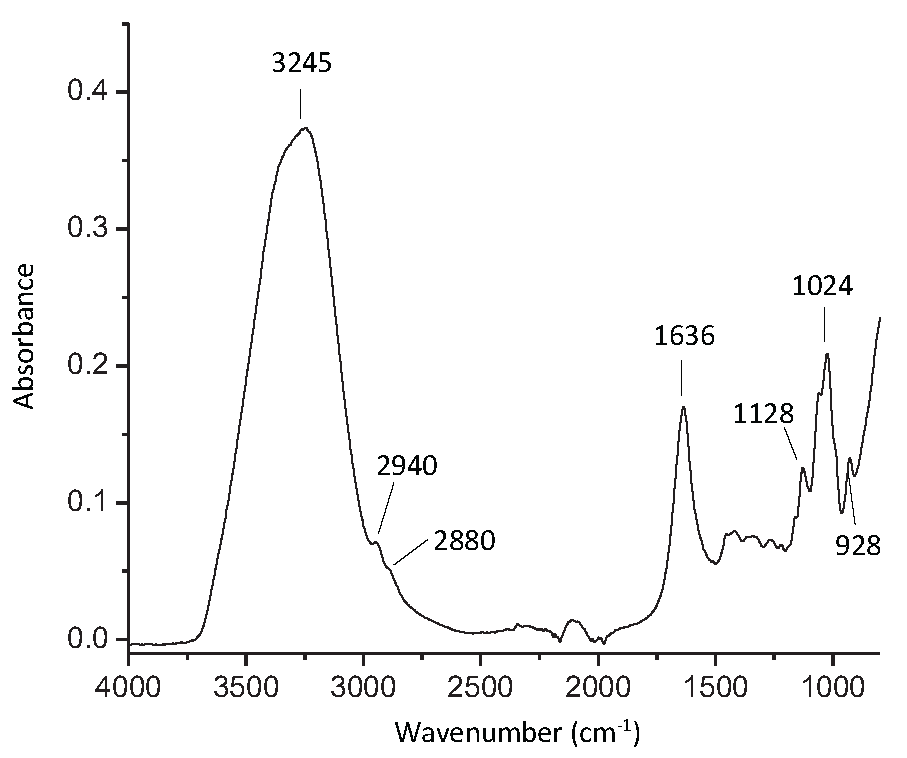 |
|
The manufacturing process of tequila made of Agave tequilana Weber var. azul consists of several important process stages such as milling, cooking, fermentation, distillation, and aging. The purpose of this contribution was to characterize five of the most important stages of the tequila production process in a pilot plant by using FTIR-ATR spectroscopy. The results showed that FTIR-ATR spectra of raw juices in the range 4000 and 700 cm-1, were mostly composed of absorption peaks associated with water and fructose. The spectra of cooked juices showed the thermal hydrolysis of the fructans to fructose in the interval between 1200 and 800 cm-1. The FTIR-ATR spectra of the samples fermented showed a gradual sequence transforming fructose peaks to ethanol peaks during the interval time from 0 to 48 h at 35°C. The spectra obtained from the distillation showed that the intensity of the peaks was a function of the concentration of ethanol in the product distillates. The evolution of the aging of the “tequila blanco” in an oak barrel was monitored for 60 days. The results showed that the region between 1300 and 900 cm-1 of the FTIR-ATR spectra was associated with the aging process in the oak barrel.
Keywords: tequila, FTIR-ATR spectroscopy, agave juice, cooking and fermentation process, stage of aging.
|
|
 |

